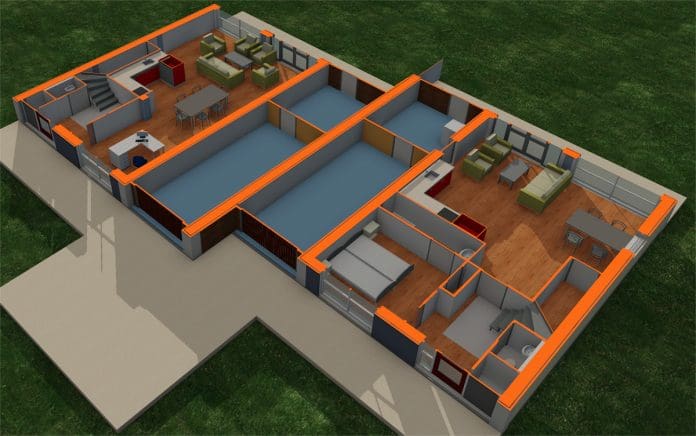The Netherlands faces a similar housing crisis to the UK- and modular building could solve both countries’ crisis and reduce sustainability to boot.
Scarce housing and rising carbon emissions present challenges. The common factor is that a decent home is too expensive and that there are just not enough affordable homes.

The Dutch housing sector, for example, is experiencing considerable strain by a combination of high demand and a scarcity of affordable homes. This has been a contributing factor to the significant surge in house prices within the Netherlands, placing it among the highest in the European Union.
Building land in the Netherlands is scarce. The permit procedures are long, there are many regulations and parties involved, and there is a lot of citizen participation (NIMBYism) which delays the process.
The building sector faces multiple operational challenges including escalating raw material costs, labor shortages, and an increasingly critical environmental issue: greenhouse gas emissions.
Globally, the largest source of greenhouse gas emissions is energy consumption and 40% of this energy is consumed within buildings. An industrialised modular construction approach, noted for its efficiency and potential to reduce emissions will address both the housing and reducing CO2 emissions.
The entire construction industry is faced with an urgent challenge of enhancing productivity and sustainability. Conventional on-site construction projects waste significant resources such as time and materials, which negatively affects productivity.
As the housing market continues to search for innovative solutions to meet growing demands for affordability, sustainability, and efficiency, modular construction emerges as a transformative force. Unlike traditional construction methods, modular construction involves manufacturing sections of a building off-site in a factory setting. These modules are then transported to the construction site and assembled, significantly reducing the time and cost associated with building a new home or commercial property.
This method of construction has seen a surge in popularity over recent years, driven by advancements in technology and growing awareness of its potential benefits. The modular construction industry is not just altering the way we build; it’s reshaping our entire approach to housing development and real estate investment.
One of the most compelling advantages of modular construction is its cost-efficiency. By streamlining the construction process, reducing waste, and minimizing delays due to weather or labor shortages, modular construction can save developers and homeowners alike significant amounts of money. Moreover, the controlled environment of a factory setting allows for more precise construction, reducing the likelihood of mistakes and the need for costly corrections down the line.
Sustainability is another key benefit of modular construction. The method produces less waste than traditional construction methods, as materials can be ordered in precise quantities and unused materials can be recycled or reused. Additionally, because modules are constructed in a controlled environment, there is less disturbance to the build site, preserving the local ecosystem. These eco-friendly aspects are increasingly important to consumers and developer’s conscious of their environmental impact.
The future of modular construction is bright, with many industry experts predicting significant growth in the sector over the coming years. As technology continues to advance, we can expect to see even more efficient, sustainable, and flexible designs that could further revolutionize the housing market. Smart homes, incorporating IoT devices and green technologies, are particularly well-suited to modular construction, offering potential for energy-efficient, highly customizable living spaces.
Moreover, as the world continues to grapple with the urgent need for affordable housing, modular construction presents a viable solution. By reducing construction costs and timeframes, modular homes can be a key strategy in addressing housing shortages around the globe. The scalability of modular construction also means it can be effectively used for large-scale housing projects, such as apartment buildings or housing developments, further expanding its potential impact on the housing market.
